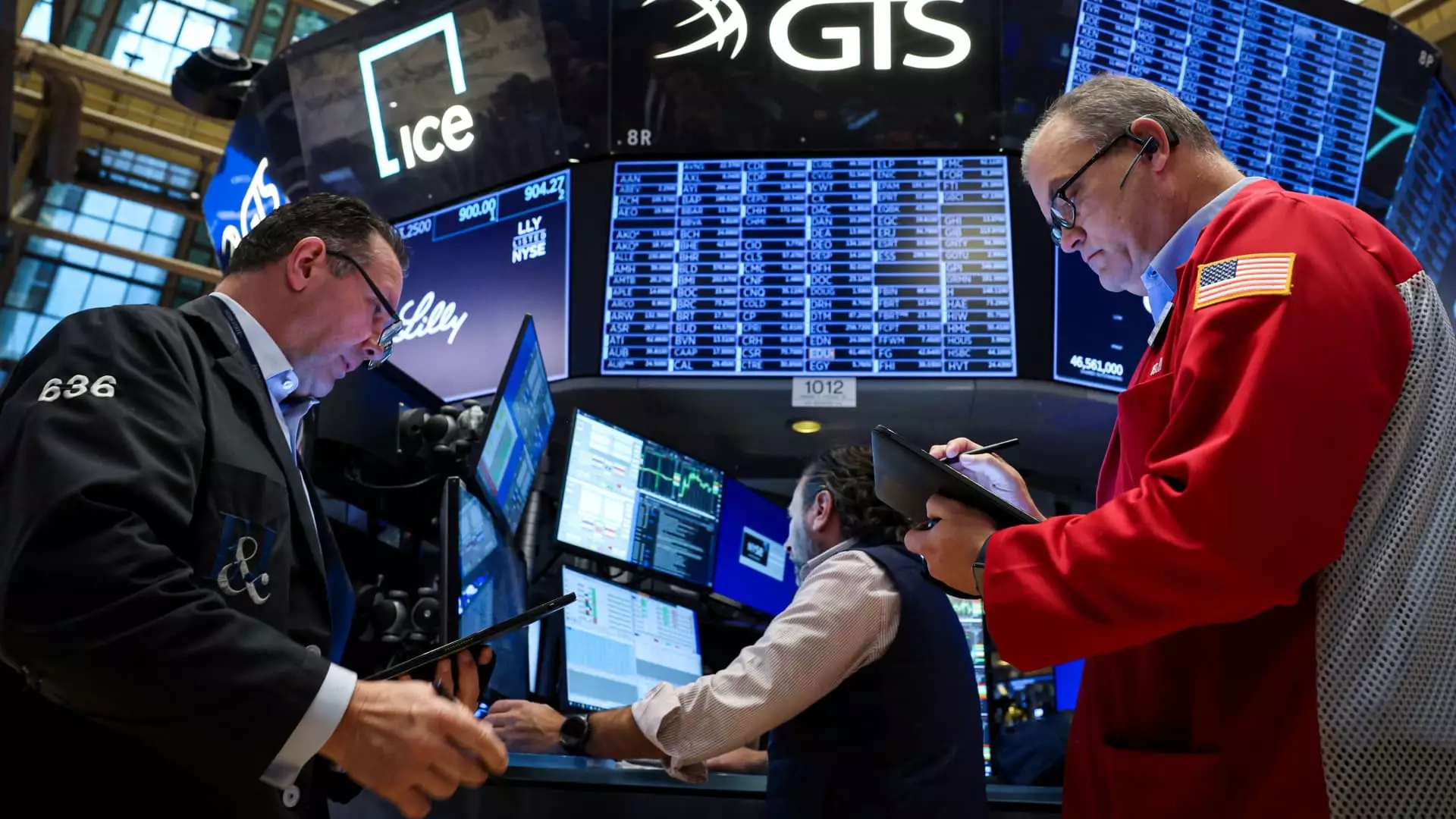As the U.S. approaches its presidential election, the prevailing atmosphere of uncertainty has injected palpable anxiety into the investment community. The sharp decline experienced by major indices—most notably the Dow Jones Industrial Average, which saw its steepest drop since early December—illustrates the immediate ramifications of electoral tensions. Such pronounced market fluctuations are indicative of a broader pattern where investor sentiment is heavily swayed by political events. As Jordan Jackson, a global market strategist at J.P. Morgan Asset Management, remarked, these scenes of volatility are expected to continue as the nation nears election day, and this observation rings true with historical precedents.
Reflecting on past election cycles uncovers a recurring theme: while precursory market trepidation is typical, subsequent recoveries are prominently observed. Jackson’s assertion that markets tend to rebound toward the end of the year aligns perfectly with historical trends. Although the present mood is troubled, there is reason to maintain an optimistic outlook based on these historical outcomes. A survey conducted by F&G reveals that around 72% of American investors experience significant concerns regarding the impending election, showcasing the emotional weight that political climates can exert on markets. In these times of uncertainty, Jackson encourages a steadfast approach, reminding investors of the resilience inherent in market dynamics.
Positive Indicators Amidst Concerns
Despite the lurking fears tied to electoral outcomes, Jackson outlines several factors that suggest a more favorable economic landscape is on the horizon. The Fed’s recent decision to enact a half-percentage-point reduction in interest rates aligns with the current tide of declining inflation rates. The Consumer Price Index (CPI) inflation recorded a significant dip to 2.4% in September, representing a drastic improvement from its peak of 9.1% in June 2022. This shift creates an environment conducive to growth and recovery, encouraging investors to remain vigilant for opportunities despite short-term market turbulence.
Moreover, corporate fundamentals are indicating a positive trajectory. Jackson notes that while speculative sector bets might seem enticing amidst campaign rhetoric, thorough analysis of corporate earnings should take precedence to make informed investment decisions. It is crucial for investors to discern between the noise of political debate and the tangible performance of corporations to guide their strategies effectively.
Finally, the consumer experience remains an essential aspect of economic health. Although consumers are still grappling with the reality of price pressures, there are signs of improvement as wages increase and unemployment rates hold steady. Jackson anticipates a gradual upward shift in consumer confidence, suggesting that households will begin to feel more secure in their financial capabilities in 2024.
While the impending presidential election may stir jitters within the financial markets, embracing a long-term perspective backed by historical data and current economic indicators can provide solace. By focusing on underlying corporate strength and remaining steadfast through political change, investors can navigate volatility with resilience—ultimately poised to capitalize on potential market recoveries that typically follow electoral uncertainty.

Leave a Reply